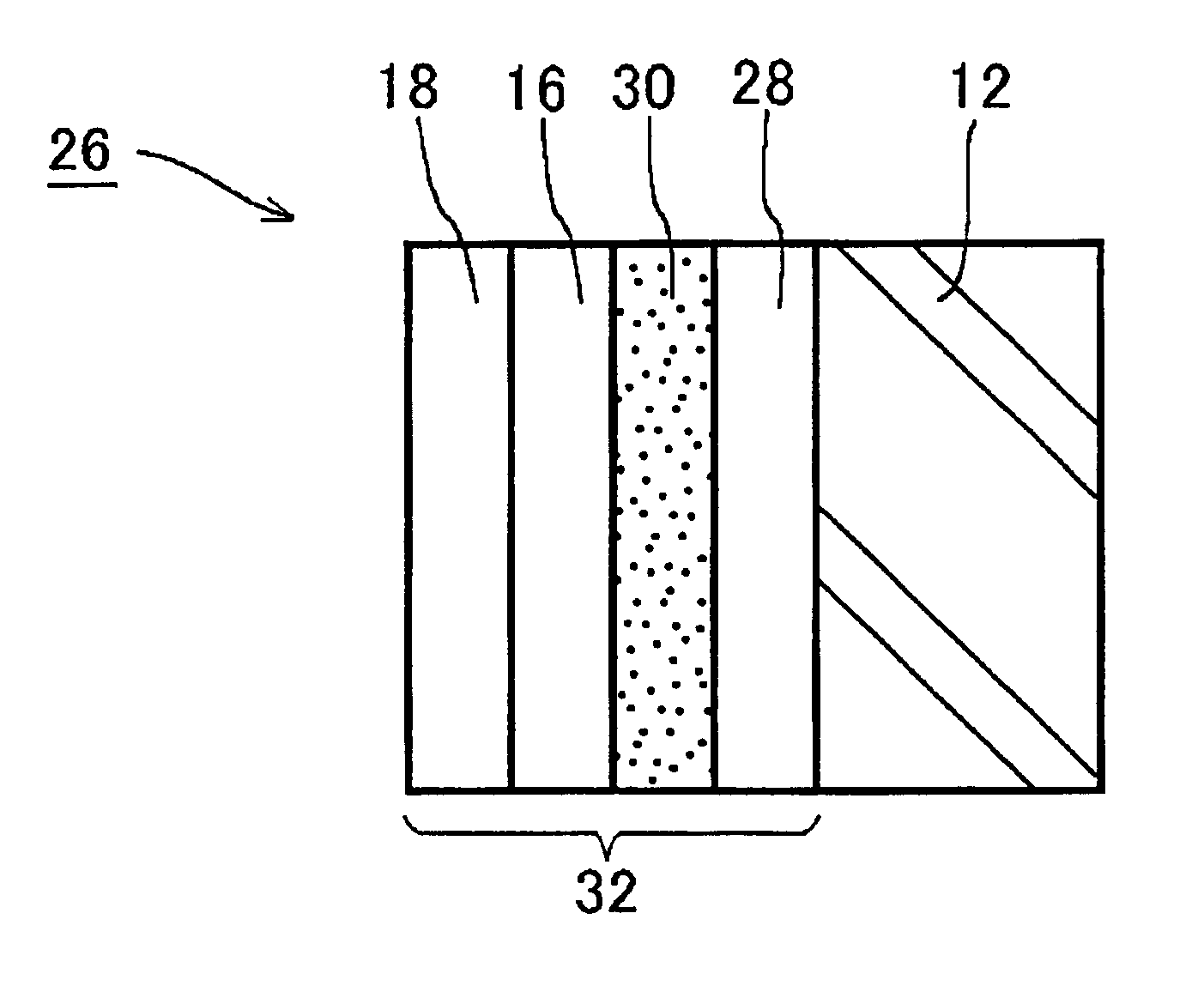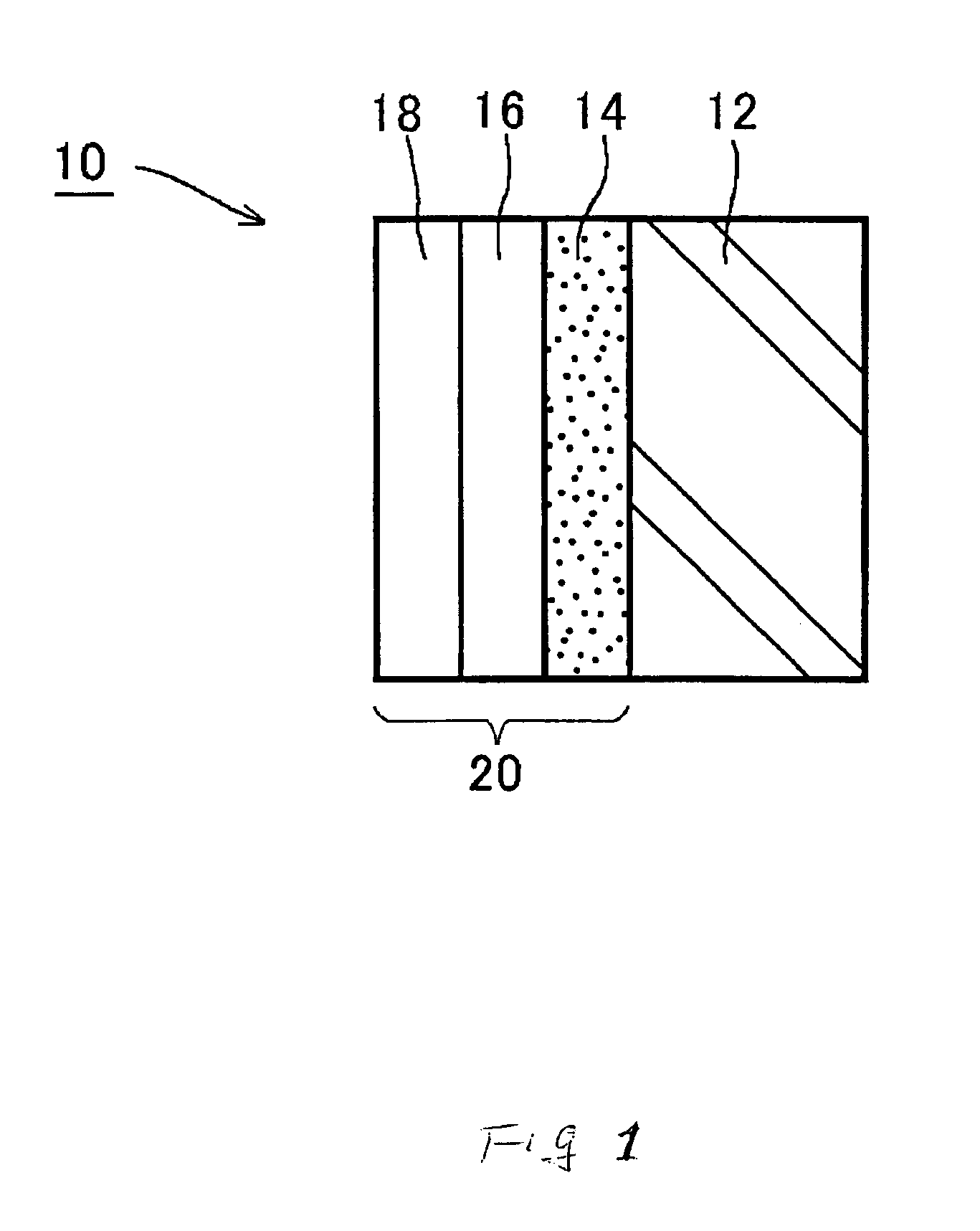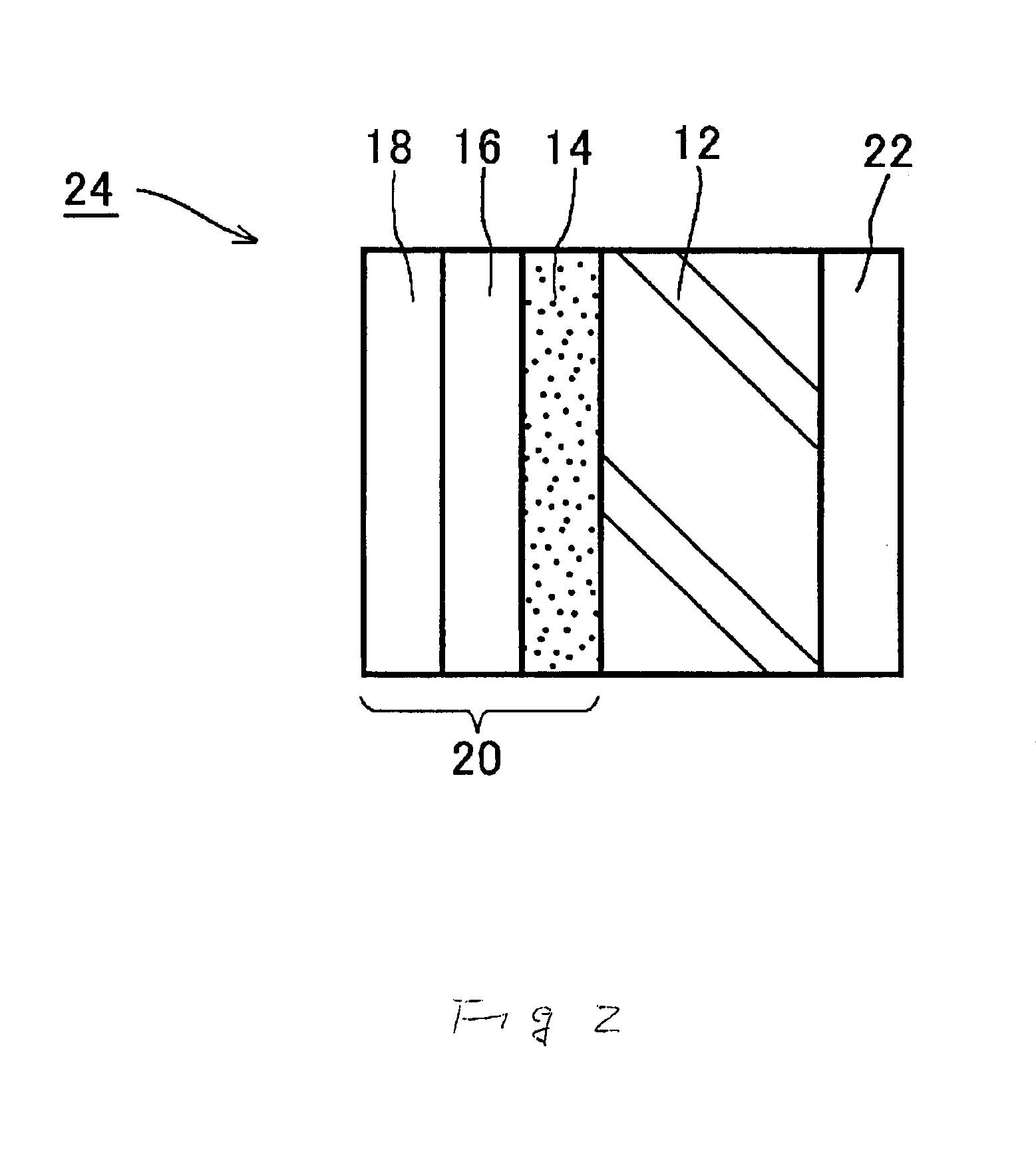Composite material
a composite material and film technology, applied in the field of composite materials, can solve the problems of deteriorating the function of the photocatalyst, easy peeling of the film, and insufficient adhesion force between the film and the substrate, and achieve the effect of resisting hot water exposure of the composite material
- Summary
- Abstract
- Description
- Claims
- Application Information
AI Technical Summary
Benefits of technology
Problems solved by technology
Method used
Image
Examples
example
Example 1
Example of Composite Material 10 Shown in FIG. 1: Containing Lanthanoide Oxide in Primer Layer
[0034]Onto glass substrate 12 having been heated to 100° C., a 30 nm thick film of a double oxide comprising La2O3 and Al2O3 or a mixture of La2O3 with Al2O3 (La2O3 / Al2O3 weight ratio=50 / 50) as primer layer 14 making up a layer for suppressing sodium dispersion, a 200 nm thick film of TiO2 as photocatalyst layer 16 in the state of not serving as photocatalyst, and a 20 nm thick film of SiO2 as hydrophilic layer 18 were formed by a vacuum deposition method in this order. Thereafter, the laminated film was thermally treated at 500° C. to impart photocatalyst layer 16 to photocatalytic functions. Since primer layer 14 making up a layer for suppressing sodium dispersion is placed between glass substrate 12 and photocatalyst layer 16, dispersion of sodium ions contained in glass substrate 12 during the course of this thermal treatment can be prevented.
example 2
Example of Composite Material 10 Shown in FIG. 1: Changing Proportion of Double Oxide or Mixture in Example 1
[0035]Onto glass substrate 12 having been heated to 100° C., a 30 nm thick film of a double oxide comprising La2O3 and Al2O3 or a mixture of La2O3 with Al2O3 (La2O3 / Al2O3 weight ratio=80 / 20) as primer layer 14 making up a layer for suppressing sodium dispersion, a 200 nm thick film of TiO2 as photocatalyst layer 16 in the state of not serving as photocatalyst, and a 20 nm thick film of SiO2 as hydrophilic layer 18 were formed by a vacuum deposition method in this order. Thereafter, the laminated film was thermally treated at 500° C. to impart photocatalyst layer 16 to photocatalytic functions. Since primer layer 14 making up a layer for suppressing sodium dispersion is placed between glass substrate 12 and photocatalyst layer 16, dispersion of sodium ions contained in glass substrate 12 during the course of this thermal treatment can be prevented.
example 3
Example of Composite Material 10 Shown in FIG. 1: Changing Lanthanoide in Example 1
[0036]Onto glass substrate 12 having been heated to 100° C., a 30 nm thick film of a double oxide comprising Pr2O3 and Al2O3 or a mixture of Pr2O3 with Al2O3 (Pr2O3 / Al2O3 weight ratio=50 / 50) as primer layer 14 making up a layer for suppressing sodium dispersion, a 200 nm thick film of TiO2 as photocatalyst layer 16 in the state of not serving as photocatalyst, and a 20 nm thick film of SiO2 as hydrophilic layer 18 were formed by a vacuum deposition method in this order. Thereafter, the laminated film was thermally treated at 500° C. to impart photocatalyst layer 16 to photocatalytic functions. Since primer layer 14 making up a layer for suppressing sodium dispersion is placed between glass substrate 12 and photocatalyst layer 16, dispersion of sodium ions contained in glass substrate 12 during the course of this thermal treatment can be prevented.
PUM
| Property | Measurement | Unit |
|---|---|---|
| thickness | aaaaa | aaaaa |
| thickness | aaaaa | aaaaa |
| contact angle | aaaaa | aaaaa |
Abstract
Description
Claims
Application Information
 Login to View More
Login to View More - R&D
- Intellectual Property
- Life Sciences
- Materials
- Tech Scout
- Unparalleled Data Quality
- Higher Quality Content
- 60% Fewer Hallucinations
Browse by: Latest US Patents, China's latest patents, Technical Efficacy Thesaurus, Application Domain, Technology Topic, Popular Technical Reports.
© 2025 PatSnap. All rights reserved.Legal|Privacy policy|Modern Slavery Act Transparency Statement|Sitemap|About US| Contact US: help@patsnap.com



